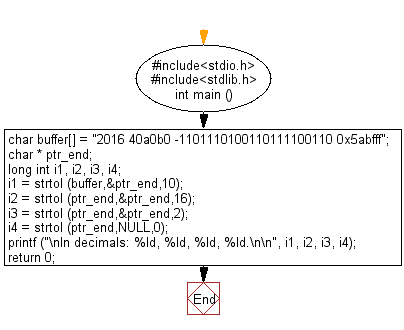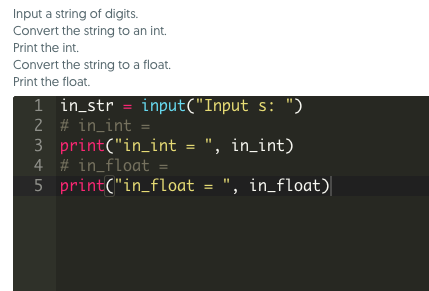

A return value indicates whether the conversion succeeded or failed. NET Core WinForms Formatting Utility (Visual Basic)Ĭonverts the span representation of a number in a specified style and culture-specific format to its 64-bit signed integer equivalent. NET Core WinForms Formatting Utility (C#) To parse the string representation of a hexadecimal number, call the TryParse(String, NumberStyles, IFormatProvider, Int64) overload. This overload of the TryParse method interprets all digits in the s parameter as decimal digits. The s parameter is parsed using the formatting information in a NumberFormatInfo object initialized for the current system culture. To explicitly define the style elements together with the culture-specific formatting information that can be present in s, use the TryParse(String, NumberStyles, IFormatProvider, Int64) method. In addition to the decimal digits, only leading and trailing spaces together with a leading sign are allowed.

The s parameter is interpreted using the NumberStyles.Integer style. ElementĪ sequence of digits ranging from 0 to 9. The following table describes each element. The s parameter contains a number of the form:Įlements in square brackets () are optional. It eliminates the need to use exception handling to test for a FormatException in the event that s is invalid and cannot be successfully parsed. The TryParse method is like the Parse method, except the TryParse method does not throw an exception if the conversion fails. The conversion fails because the string cannot contain hexadecimal digits it must contain decimal digits only. The conversion fails because the string cannot contain a negative sign other than the one defined by the current culture's NumberFormatInfo.NegativeSign and NumberFormatInfo.NumberNegativePattern properties. The conversion fails because the string cannot contain group separators it must contain integral digits only. The conversion fails because the string cannot contain a decimal separator it must contain integral digits only. Some of the strings that the TryParse(String, Int64) method is unable to convert in this example are: ' Attempted conversion of '(100)' failed. ' Attempted conversion of '16,667' failed. ' Attempted conversion of '9432.0' failed. ' The example displays the following output to the console: Private static void TryToParse(string value)īool success = Int64.TryParse(value, out long number) Ĭonsole.WriteLine("Converted '' failed.", value) The following example calls the Int64.TryParse(String, Int64) method with a number of different string values. True if s was converted successfully otherwise, false.

TryParse(String, NumberStyles, IFormatProvider, Int64)Ĭonverts the string representation of a number in a specified style and culture-specific format to its 64-bit signed integer equivalent. TryParse(ReadOnlySpan, NumberStyles, IFormatProvider, Int64)Ĭonverts the span representation of a number in a specified style and culture-specific format to its 64-bit signed integer equivalent. A return value indicates whether the conversion succeeded or failed.Ĭonverts the span representation of a number to its 64-bit signed integer equivalent. Tries to parse a span of characters into a value.Ĭonverts the string representation of a number to its 64-bit signed integer equivalent.

TryParse(ReadOnlySpan, IFormatProvider, Int64) Overloads TryParse(String, IFormatProvider, Int64) Converts the string representation of a number to its 64-bit signed integer equivalent.


 0 kommentar(er)
0 kommentar(er)
